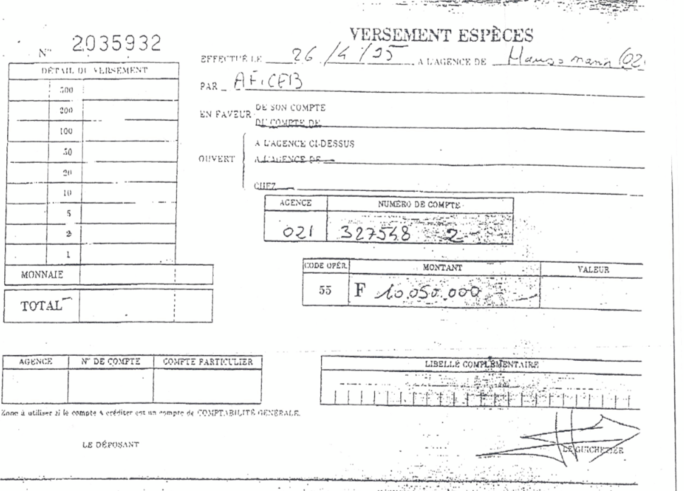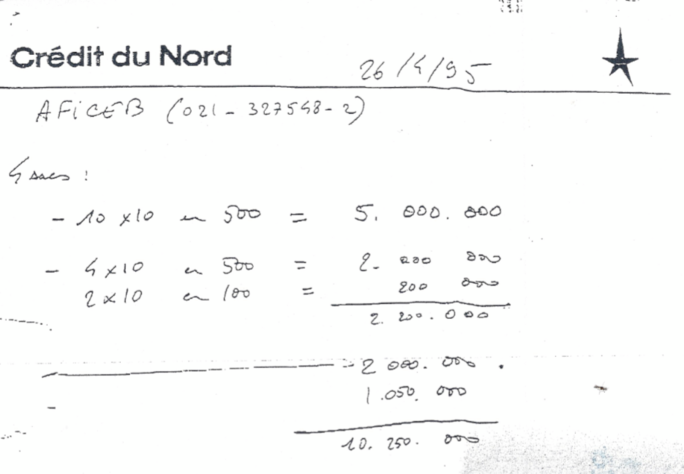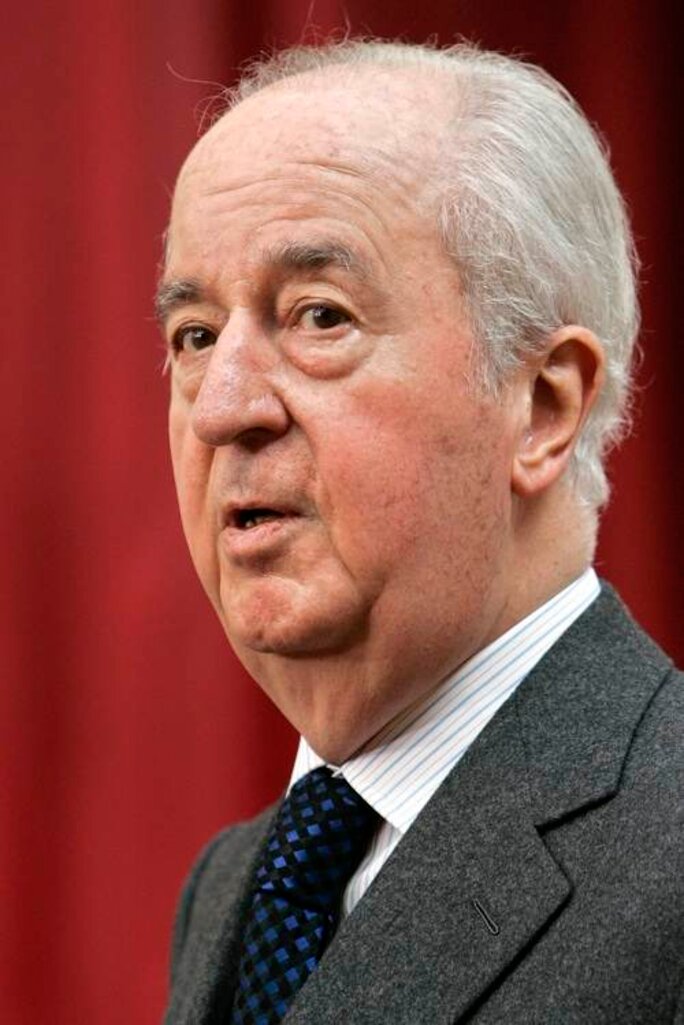A Paris magistrate investigating suspected illegal political party funding in France has obtained documents, extracts of which are exclusively published here by Mediapart, which amount to the most significant evidence yet indicating that former Prime Minister Edouard Balladur's presidential election campaign may have been partly funded via French weapons sales abroad. While the events date from the 1990s, they lie at the heart of what has become known as the Karachi Affair, a fast-developing corruption scandal implicating current French President Nicolas Sarkozy and several of his senior political allies. Fabrice Arfi reports.
-------------------------
Judge Renaud Van Ruymbeke, leading an investigation into suspected illegal political funding from two major official French weapons contracts with Pakistan and Saudi Arabia, has obtained evidence that directly links huge cash payments made to former Prime Minister Edouard Balladur's 1995 presidential election campaign and the arms deals.
The evidence is contained in two documents, extracts of which are published here by Mediapart.
The documents mount further pressure on President Nicolas Sarkozy to explain his role in the weapons contracts, and the longstanding close commercial and personal relations, until 2009, between his senior staff and a key intermediary in the 1990s weapons deals, Franco-Lebanese arms dealer Ziad Takieddine.
Sarkozy was budget minister under Balladur, his political mentor, at the time of the negotiations over the contracts, and became Balladur's campaign spokesman in his 1995 presidential election bid.
Takieddine was an intermediary who Van Ruymbeke has established was imposed by the Balladur government on both the Saudi and Pakistani deals in 1994. He continued to act as an intermediary in several major weapons contracts negotiated by Sarkozy's aides, before and after he became president, between 2002 and 2009. Mediapart has published a series of investigations detailing the secret role and relations of Takieddine with Sarkozy's close entourage, including ministers past and present.
Takieddine and his associates were promised the equivalent of 33 million euros in secret commissions for the Pakistan deal, involving the sale of three Agosta-class submarines, and 213 million euros for the sale of three La Fayette-class frigates to Saudi Arabia. The judge's investigation centres on written and verbal evidence that some of the commissions paid in the deals were siphoned off back to France, via secret financial routes, to fund Balladur's campaign.
Balladur, Sarkozy and Takieddine have all denied involvement in the alleged illegal funding.
Earlier this month, Takiedine, 61, and two of the president's close entourage, Nicolas Bazire and Thierry Gaubert, were formerly placed under investigation - one step short of being charged - for embezzlement linked to the suspected the funding scam.
Bazire, 54, Managing Director and Head of Development and Acquisitions of French luxury goods group LVMH, and who was President Sarkozy's best man for his marriage to Carla Bruni in 2008, was Balladur's 1995 presidential election campaign director. Gaubert, 60, a longstanding friend of the president, was notably one of Sarkozy's senior aides while budget minister under Balladur.
Of the two documents in Van Ruymbeke's possession and revealed here, one is a schedule of payments related to the sale of the La Fayette frigates to Saudi Arabia, a deal that was concluded in November 1994. It shows that the Balladur government demanded that the Saudi authorities pay an advance of 10 million French francs (equivalent to about 1.52 million euros) "by March 31st 1995 at the latest".
The official document setting out the staggered payments.
The significance of the date is that this was just less than a month from first-round balloting in the presidential elections in which Balladur was running as a candidate against fellow conservative right candidate Jacques Chirac.
According to several sources close to Van Ruymbeke's investigation, this demand for advance was an extraordinary move in a contract that was worth a total of 18.8 billion francs (more than 2.8 billion euros). The request for a forward payment of 10 million francs - the equivalent of 0.05% of the value of the sale - is highly unusual, if not unique, in weapons contract negotiations, and had no industrial or financial justification.
According to information obtained by Mediapart, the advance payment was made via a bank account dubbed ‘Ascia'.
"It's a bit like asking for 10 centimes as a downpayment on the sale of a Ferrari due two years later," commented one of Mediapart's sources close to the case, whose name is withheld.
Cash, coincidence and confidential documents
Judge Van Ruymbeke is also in possession of another document indicating that the sum was in fact finally paid later than requested, on April 26th 1995. That coincides with the same day when, as has already been established, 10.05 million francs were paid, in cash and in large denominations, into the bank account of Balladur's election campaign organization, the AFICEB (see document below).

Enlargement : Illustration 2


Enlargement : Illustration 3

Edouard Balladur has previously told a French parliamentary information commission looking into his election accounts that the huge cash sums paid into his organization's account were the proceeds of the sale of T-shirts and gadgets during his campaign meetings.
After consistently denying knowledge of illegal party funding of his campaign through weapons sales, he is now expected to be questioned by Van Ruymbeke in the coming weeks.

Enlargement : Illustration 4

Since his investigation was opened in 2010, Van Ruymbeke has run into official opposition to his requests for government documents related to the deals with Saudi Arabia and Pakistan. On one of the most notable occasions, on January 12th officers from the French police National Financial Investigation Division, the DNIF, acting on a warrant issued by the judge, requested the French budget ministry hand over documents relating to commissions paid in the Sawari 2 contract. They were refused access to 784 pages of reports that had been classified as official ‘defence secrets'.
The government has refused Van Ruymbeke's official demand that the documents be de-classified for the purposes of his investigation.
The Saudi contract, codenamed Sawari 2, and the Agosta submarines sale to Pakistan, are at the heart of a scandal that has become known as the Karachi Affair, which owes its name to the murders, in 2002, of 11 French naval engineers who were helping build one of the three Agosta submarines in the Pakistani port city. (See Mediapart's Q&A guide here and a video presentation here).
The credited lead in an ongoing magistrate's investigation into their murders, separate to that of Van Ruymbeke, is that they were the victims of a revenge attack for the non-payment of commissions, or bribes, promised to Pakistani officials in the deal.
Several witnesses questioned in that enquiry, led by Judge Marc Trévidic, have suggested that Jacques Chirac, who beat Balladur in the 1995 presidential vote, cut off the payment of commissions immediately after his election to starve his fellow-right rival Balladur of funds. Implicit to this allegation, partially confirmed by former defence minister under Chirac, Charles Millon, is that Chirac suspected Balladur was partly funded by the network of commissions established for the deal.
In the 1995 presidential elections, Chirac was the designated candidate for Gaullist RPR party, of which Balladur was a leading figure. But, just months before the poll, Balladur betrayed Chirac by running as a rival conservative right candidate. It was the beginning of a bitter feud between the camp loyal to Chirac and that of Balladur, which included Nicolas Sarkozy, and is a key element in understanding the events surrounding the Karachi Affair.
-------------------------
For more on this story and Mediapart's exclusive investigations into the political scandal surrounding the activities of arms dealer Ziad Takieddine, click on the links below:
British divorcee becomes key witness in French political funding scandal
Net closes in on French presidency after funding 'scam' arrests
Arms dealer probe brings illegal funding scandal closer to Sarkozy
The secret financier who brings danger to the Sarkozy clan
Sarkozy, the arms dealer, and a secret 350 million-euro commission
The well-connected arms dealer and his tax returns
How Sarkozy aides saved arms dealer from paradise island 'death blow'
Exclusive: how Sarkozy's team sought grace for Gaddafi's murderous henchman
The arms dealer and his Paris party for the glitterati
Exlusive: how President Sarkozy's team dealt with Gaddafi
When Total paid the bill for the Elysée's secret emissary
How French intelligence shields the sarkozy clan's unofficial emissary
Divorce court freezes arms broker's assets
The French-built stealth offroader that may be hiding Gaddafi
-------------------------
English version: Graham Tearse


